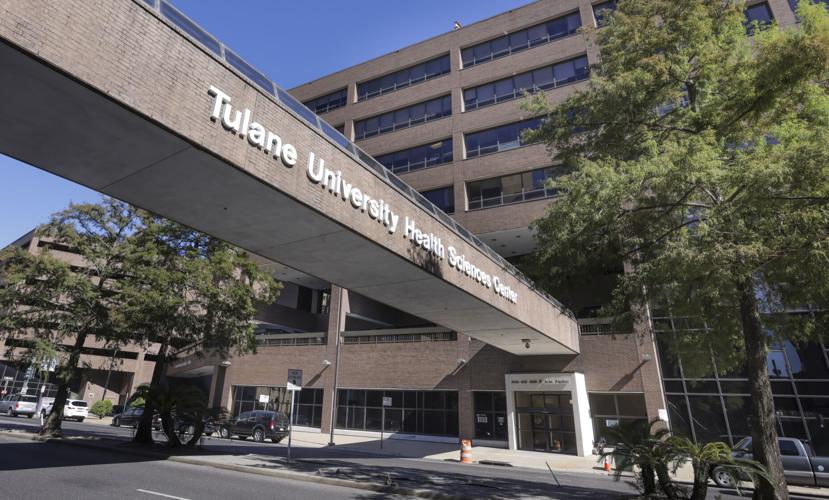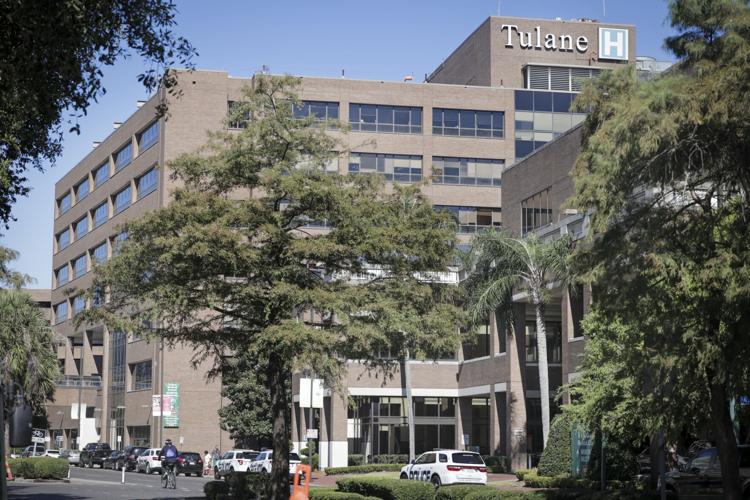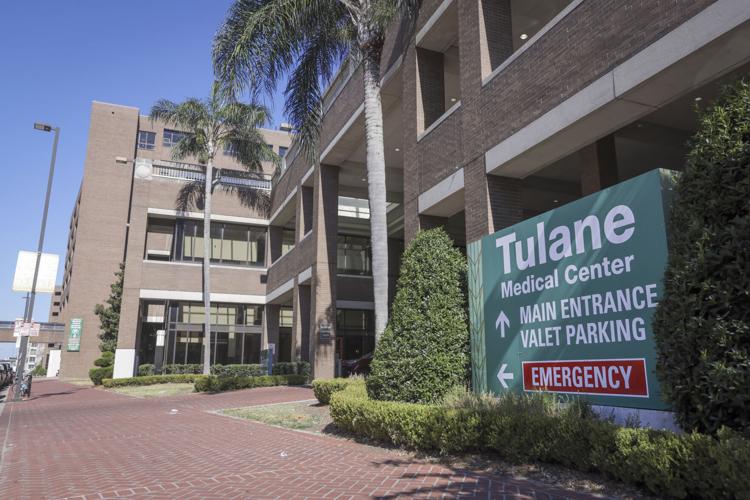The escalating court fight between LCMC Health and the Biden Administration over LCMC’s January purchase of three area hospitals is shaping up to be long and costly. It could also reshape how hospital systems consolidate across the country.
Health care and legal analysts say the case, which is broadly about antitrust issues but centers on whether LCMC should have sought federal approval of the $150 million deal with HCA Healthcare and Tulane University, raises questions never before tested by the courts.
“This is an issue that could go before the United States Supreme Court,” said Luke Hasskamp, a San Diego-based health care attorney with Bona Law. “There are significant implications here, and a lot of states will be watching to see how this plays out.”

Lakeview Regional Medical Center on Friday, Oct. 21, 2022. Tulane University and LCMC announced on October 10, 2022 that LCMC would purchase Tulane Medical Center (along with Lakeview Regional Medical Center, and Tulane Lakeside Hospital) from HCA for $150 million.
The legal battle could also delay, and potentially thwart, LCMC’s plans to close the Tulane University Medical Center downtown and relocate hundreds of medical residents to East Jefferson General Hospital.
The Federal Trade Commission has asked a federal judge in Washington, D.C. to stop LCMC from making any changes at the hospitals it acquired until all the legal challenges have been resolved and the agency has reviewed the deal — a process that could take months or years.
LCMC officials have declined to comment on the legal fight beyond remarks made in prepared statements, saying “We are on solid ground and Louisiana knows what is best for our community.”
Mounting costs
LCMC filed suit against the FTC in U.S. District Court for the Eastern District in New Orleans on April 19, after the FTC challenged the health system’s purchase of Tulane Medical Center downtown, Tulane Lakeside Hospital in Metairie and Lakeview Regional Medical Center in Covington.
The agency said LCMC should have sought a federal review of the deal — which gives LCMC control of nine hospitals in a market with just two competing health systems, LCMC and Ochsner — to ensure it will not lead to higher prices or reduced access to care.
LCMC argues it didn’t need to seek the FTC’s blessing because Louisiana is one of 20 states that gives regulatory authority over hospital consolidations to state government, which issues a Certificate of Public Advantage, or COPA, if it determines a merger or acquisition is in the best interest of the people. Louisiana Attorney General Jeff Landry issued a COPA in late December, clearing the way for the deal to move forward. Landry has since attempted to intervene on behalf of LCMC in the New Orleans suit.
Already, the penalties are steep. The agency has subjected LCMC to fines and penalties of some $46,000 a day, which, depending on when the FTC started the clock, could total anywhere from $5 million to $10 million so far.
Earlier fights
The FTC has fought state health systems over mergers in the past, but those cases centered on whether the consolidations would create monopolies or unfair competitive situations in those markets.
That’s not the current issue with the LCMC deal. This case, as it moves forward, could set new standards for how state and federal regulations should overlap when it comes to approving these types of mergers.
“The FTC is not saying there is anything anticompetitive here yet,” Hasskamp said. “What they are saying is, 'Hey, we just want to review this deal and your state approval does not allow you to bypass a federal merger review.'”
According to attorneys familiar with health care and antitrust regulation, it is likely that LCMC anticipated its strategy could bring FTC scrutiny. LCMC signed a letter of intent to acquire the hospitals in January 2022, court documents show.
In August, while LCMC was negotiating the terms of the deal, the FTC issued a report criticizing state COPA laws as too lax in approving hospital consolidations.
“The FTC and the U.S. Department of Justice have been really hard on mergers and acquisitions,” said Ge Bai, a professor of Health Policy Management at Johns Hopkins University. “Their position on this is well known.”
To help guide it through the regulatory process, LCMC hired Hogan Lovell attorney Ken Field, a former FTC regulator and one of the nation’s top experts in the field of health care mergers. He helped LCMC secure the COPA from the state.
“These parties were ready to go with pretty sophisticated litigation in two federal courts, and it feels like they are moving fast,” Hasskamp said. “The big law firms are involved and there have been several significant motions in just a few days. For all of that to happen to in less than a week is pretty remarkable and signals they anticipated this.”
Choosing a venue
As the legal battle plays out, one of the first issues that will need to be resolved is where the cases will be fought. LCMC has filed documents to move the FTC case to Louisiana, where it would presumably be consolidated with the LCMC case. The FTC wants to fight the case in Washington.
Louisiana is located in the U.S. Fifth Circuit, which is one of the more conservative circuits in the federal system. Aaron Gott, an antitrust lawyer in Minneapolis, said the Fifth Circuit is more likely to be "a favorable" court for defendants in this type of case where state and federal regulatory structures are at odds.
Plans on hold?
The other pressing legal question is whether LCMC has to put on hold its plans to integrate the hospital systems while the case plays out. Currently, a temporary order is in place barring LCMC from closing the downtown medical center or the other two hospitals it acquired, though the health system can shift employees among hospitals.
That order will expire once the court rules on the more significant and far-reaching measure.

Tulane Medical Center is seen at 1415 Tulane Avenue in New Orleans on Monday, October 10, 2022. (Photo by Brett Duke, NOLA.com | The Times-Picayune | The New Orleans Advocate)
One of the changes the health systems have said they will make is to close Tulane Medical Center downtown and shift some 500 medical residents currently training there to East Jefferson General Hospital, which LCMC has owned since 2020.
Court documents show that among the benefits of moving medical residents to East Jefferson is that it could make the Metairie hospital eligible for a discount on pricey drugs, like those used for chemotherapy.
Currently, East Jefferson is not eligible for the so-called 340B discounts because it doesn’t treat enough low-income patients.
"The savings (from 340B) will be reinvested locally to improve health care in the region, thereby benefiting patients and the community at large,” LCMC said in its original COPA filing with the attorney general last year. That application, now part of the court record, was redacted to conceal how much of a savings that could represent to the health system.
If the court orders LCMC to put everything on hold while the case plays out, presumably those changes also have to wait, as would LCMC’s plans to close Tulane's downtown hospital.
Jeff Goldsmith, a health care industry consultant with Health Futures in Virginia said that point raises questions about why the FTC is so concerned about the LCMC merger.
"Mergers are not inherently bad for a community," said Goldsmith. "It depends on what the alternative is."




